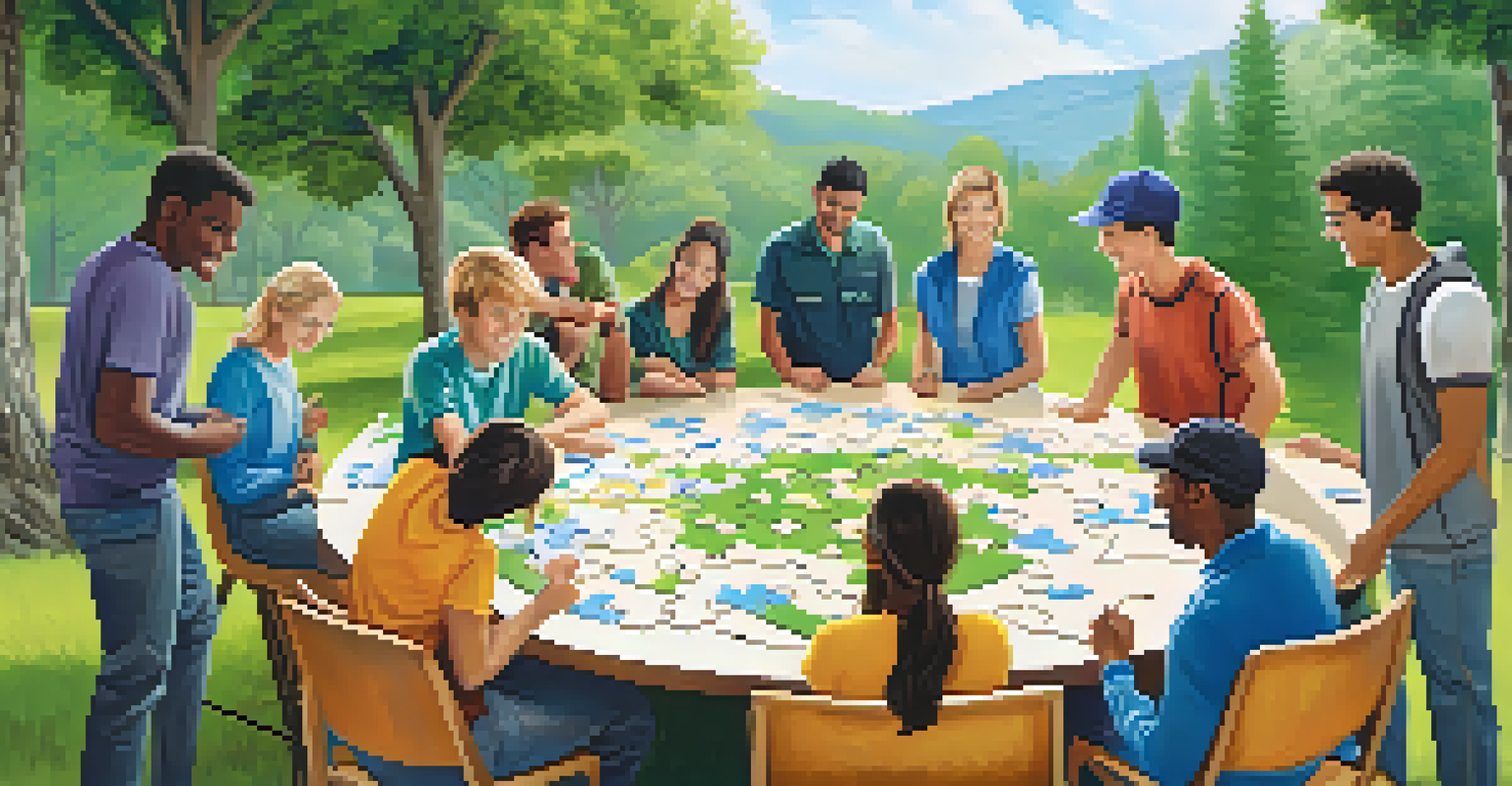The Importance of Collaboration in Developing 21st Century Skills

Understanding 21st Century Skills and Their Importance
In an ever-evolving world, 21st-century skills are crucial for success. These skills include critical thinking, creativity, communication, and collaboration. They prepare individuals for the complexities of modern life, making them adaptable and resourceful.
Alone we can do so little; together we can do so much.
To thrive in today’s workplace, individuals must not only have technical expertise but also soft skills that foster teamwork and innovation. For instance, a project manager who can effectively communicate with their team is more likely to succeed than one who lacks those interpersonal skills.
As we embrace digital tools and global connectivity, the need for these skills becomes even more pronounced. Collaboration, in particular, stands out as a cornerstone of effective problem-solving and idea generation.
The Role of Collaboration in Skill Development
Collaboration acts as a catalyst for developing essential skills. When individuals work together, they share diverse perspectives, enriching the learning experience. This exchange of ideas not only enhances creativity but also promotes critical thinking.

For example, think of a group project where each member brings unique strengths to the table. As they brainstorm solutions, they learn to navigate differing opinions, fostering effective communication and negotiation skills. These interactions are invaluable in preparing them for real-world challenges.
Collaboration Enhances Skill Development
Working together fosters critical skills like communication, creativity, and accountability among team members.
Moreover, collaboration encourages accountability among team members. When people rely on each other to achieve a common goal, they develop a sense of responsibility and commitment, which are key traits in any professional setting.
Building Effective Collaborative Teams
Creating a collaborative environment starts with building effective teams. This involves selecting individuals with complementary skills and a shared vision. A diverse team can tackle problems from various angles, leading to innovative solutions.
Collaboration allows us to know more than we are capable of knowing by ourselves.
Establishing clear roles and responsibilities is another essential step. When every team member knows what is expected of them, the collaboration flows more smoothly. This clarity minimizes confusion and maximizes productivity.
Regular check-ins and open communication are also vital. They allow team members to voice concerns, share progress, and provide feedback, all of which strengthen the collaborative process.
Embracing Technology for Collaboration
In the digital age, technology plays a significant role in facilitating collaboration. Tools such as video conferencing, project management software, and instant messaging enhance connectivity among team members, regardless of their location.
For instance, platforms like Slack and Trello allow teams to communicate and organize tasks efficiently. This digital collaboration not only streamlines workflows but also opens doors for global teamwork, bringing together diverse talents.
Technology Facilitates Teamwork
Digital tools enable efficient collaboration, allowing teams to connect and innovate across distances.
However, while technology enhances collaboration, it’s essential to balance it with face-to-face interactions. Personal connections foster trust and rapport, which are critical components of effective teamwork.
Overcoming Challenges in Collaborative Efforts
While collaboration offers numerous benefits, it also comes with challenges. Differences in communication styles, work ethics, and cultural backgrounds can lead to misunderstandings. Recognizing these potential obstacles is the first step to overcoming them.
To address these challenges, fostering an inclusive environment is key. Encouraging open dialogue and active listening helps team members understand each other's perspectives, reducing friction and promoting harmony.
Moreover, conflict resolution strategies should be in place. By addressing disagreements constructively, teams can turn challenges into opportunities for growth and learning.
Real-World Examples of Successful Collaboration
Many organizations have harnessed the power of collaboration to drive success. For example, tech giants like Google emphasize teamwork in their work culture, leading to groundbreaking innovations. Their collaborative approach fosters creativity and accelerates problem-solving.
In education, collaborative learning methods have gained traction, enabling students to develop critical skills. Projects that require teamwork not only enhance academic performance but also prepare students for future careers.
Overcoming Challenges in Teams
Recognizing and addressing communication differences is essential for maintaining a harmonious and productive collaborative environment.
These real-world examples highlight that successful collaboration is not just a trend; it’s essential for thriving in the modern landscape. They serve as a reminder that when individuals come together, the possibilities are limitless.
The Future of Collaboration and Skill Development
As we look ahead, the importance of collaboration in skill development will only grow. With the rapid pace of change in technology and industry, the ability to work effectively with others will be a significant differentiator.
Future workplaces will likely prioritize collaborative skills, making them a core component of hiring and training processes. Organizations that invest in collaboration will be better positioned to adapt to change and drive innovation.

In conclusion, fostering collaboration is not just about enhancing individual skills; it’s about preparing for a future where teamwork is the norm. By embracing collaboration today, we lay the groundwork for a more connected and successful tomorrow.